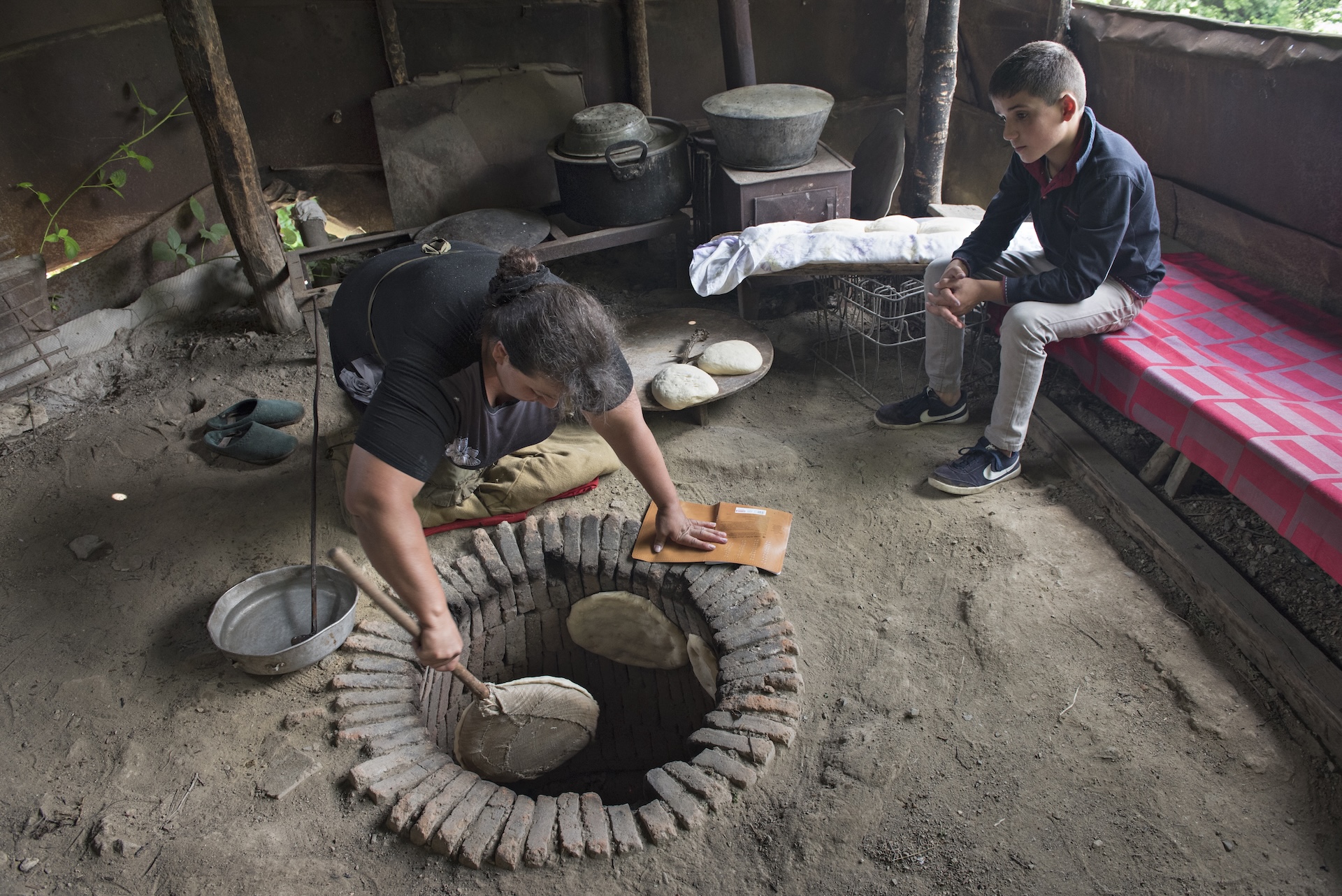
The preparation of the traditional Armenian bread, lavash, requires highly specific skills.
The dough, a mixture of flour, water, and salt, is kneaded for a long time by women who handle it with impressive dexterity, rivaling the most skilled pizza makers in Italy. They then divide the dough into balls, which are eventually stretched and flattened using molds similar to the one this woman is using. Pressed against the walls of the traditional oven known as tonir, each piece of dough is ‘peeled off’ after a short baking time.
In daily life, lavash is often rolled like a crêpe and filled with local cheeses, vegetables, or meat—that is, when these food items are available. This was not the case in Nagorno-Karabakh between December 2022 and September 2023, and the situation was extremely critical. The blockade imposed by Azerbaijan prevented residents from obtaining supplies from Armenia. With each passing month, food shortages worsened, leading to scenes of devastation, such as long lines forming at dawn to access nearly empty stores.
Starvation gradually took hold, and in August 2023, the death of a 40-year-old man due to chronic malnutrition was officially reported. The blockade was described by several international experts as genocide, referring to the United Nations Convention on the Prevention and Punishment of the Crime of Genocide. According to this text, “certain acts committed with the intent to destroy, in whole or in part, a national, ethnic, racial, or religious group” constitutes genocide and is an international crime.
Exhausted by months of deprivation, the inhabitants could no longer offer resistance when, in September 2023, Azerbaijan launched a final assault that forced an entire population into exile.